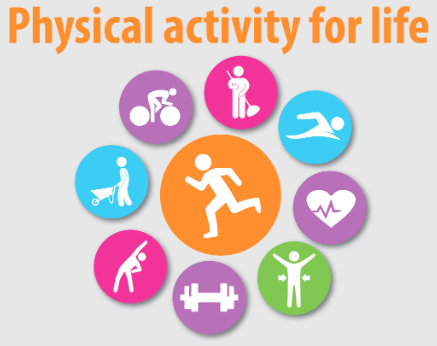
Physical activity has long been associated with various health benefits such as weight management,
cardiovascular health, and improved physical fitness. However, research over the past several decades
has also shown a strong connection between physical activity and mental clarity, indicating that
exercise is not only good for the body but also for the mind.
Mental Clarity and Exercise
Regular physical activity has been linked to improved cognitive function and mental clarity. Engaging
in exercises that increase heart rate and blood flow to the brain has shown to enhance cognitive
abilities such as memory, attention span, problem-solving, and overall mental performance.
Exercise triggers the release of endorphins, also known as “feel-good” hormones, which enhance mood,
reduce stress, and combat symptoms of anxiety and depression. This biochemical process not only
contributes to a positive psychological state but also promotes mental clarity and improved focus.
Brain Health and Physical Activity
Physical activity stimulates the growth of new neurons and enhances synaptic plasticity, which is the
ability of the brain to form and reorganize connections between brain cells. Regular exercise has been
shown to increase both the volume of the hippocampus, a brain region critical for memory formation,
and the secretion of brain-derived neurotrophic factor (BDNF), a protein that supports the survival
and growth of neurons.
Studies have demonstrated that individuals who engage in aerobic exercises, such as running, swimming,
or cycling, have a higher volume of gray matter in brain regions associated with attention, memory,
and executive functions. These structural changes contribute to improved cognitive function, mental
clarity, and a reduced risk of age-related cognitive decline and neurodegenerative disorders like
Alzheimer’s disease.
Impact of Exercise on Mental Health Issues
Mental health issues, such as anxiety and depression, can significantly impact cognitive function,
memory, and overall mental clarity. Engaging in physical activity has been shown to have a positive
impact on mental health and aid in the management and prevention of these conditions.
Exercise activates the release of endorphins, which act as natural antidepressants, and promote a sense
of calm and relaxation. Additionally, physical activity increases the production of brain
neurotransmitters like serotonin, dopamine, and norepinephrine, which play crucial roles in regulating
mood, stress response, and mental well-being.
Practical Strategies to Improve Mental Clarity through Exercise
Here are some practical strategies to incorporate exercise into your routine to enhance mental clarity:
Engage in aerobic exercises such as walking, jogging, or dancing for at least 30 minutes a day,
five days a week.
Include strength training exercises to improve muscle strength and overall fitness.
Practice mind-body exercises like yoga, tai chi, or Pilates to improve focus, mindfulness, and
reduce stress.
Try outdoor activities such as hiking or gardening to combine physical activity with the benefits
of nature.
Break up prolonged sitting or sedentary behavior with short physical activity breaks throughout
the day.
Find activities you enjoy and mix up your routine to maintain motivation and prevent boredom.
Consider joining group exercises or classes to enhance social interaction and accountability.
Set realistic goals and gradually increase the duration and intensity of your workouts.
Conclusion
The connection between physical activity and mental clarity is undeniable. Engaging in regular exercise
not only benefits physical health but also enhances cognitive function, mental well-being, and overall
mental clarity. By making exercise a priority in our lives, we can improve our brain health, manage
mental health conditions, and reap the countless benefits of a clear and focused mind.

